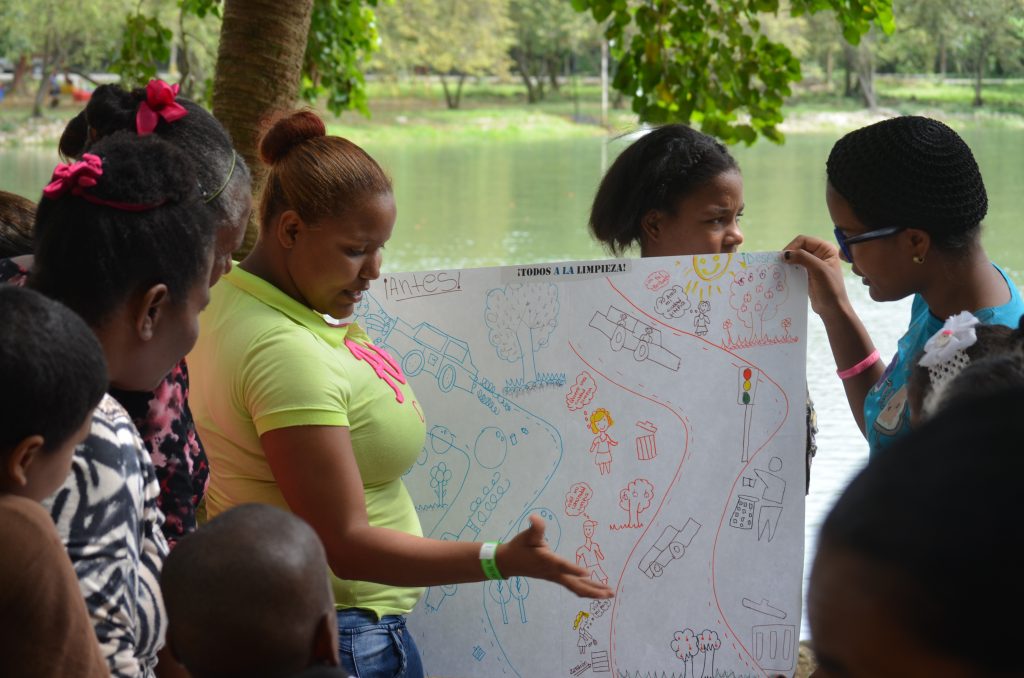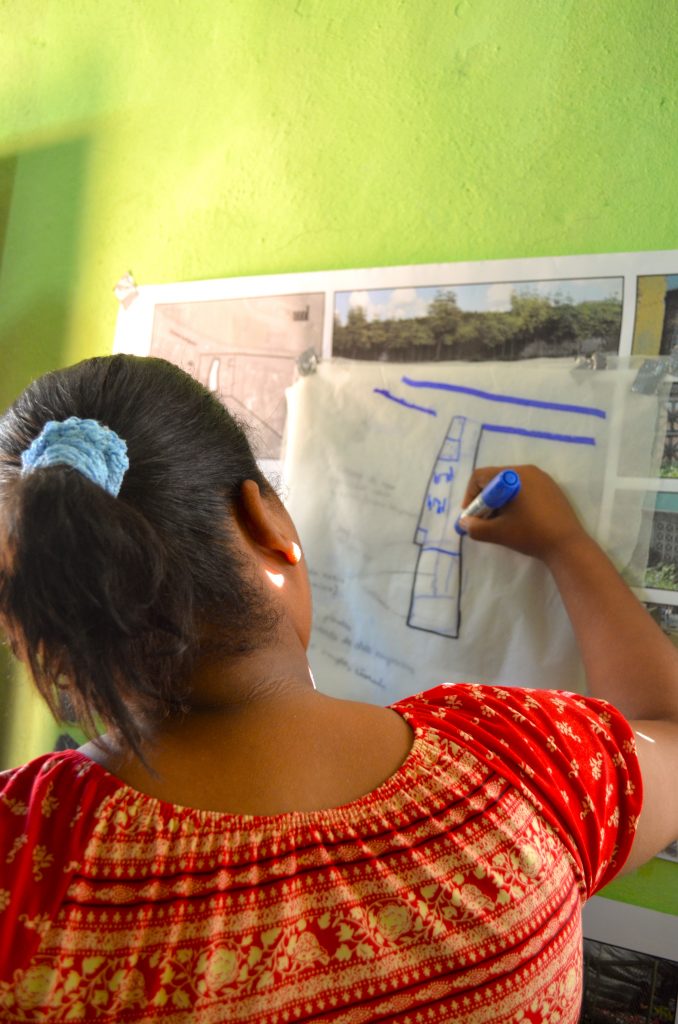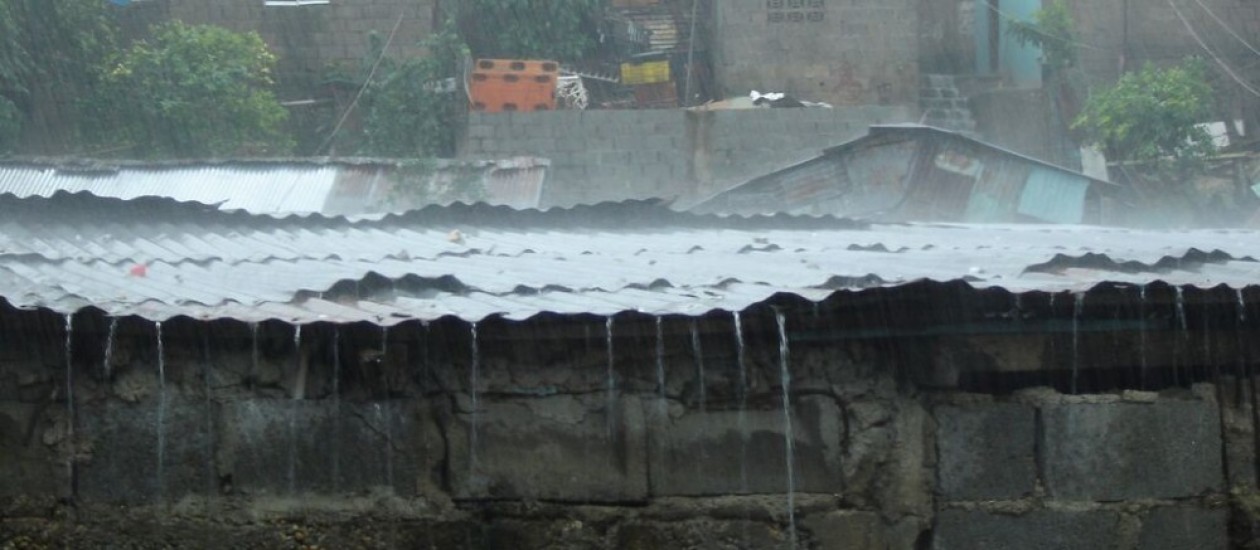In 2016, students worked with residents and civil society partners to address design, social enterprise, and community based solid waste management concerns in Los Platanitos. The work collectively emphasized the need for understanding infrastructure in a variety of ways as interconnected spatial, material, and social phenomena.
See the full 2016 report here.
Working towards advancing a community based solid waste management program in Los Platanitos, residents and students worked together to consider the feasibility of a community managed trash collection program. Students also worked directly with community members about how to address educational awareness around the issue of trash and environmental contamination in the community.

Students worked closely with Mujeres Unidas to support their ongoing social enterprise and organizational development efforts. This included undertaking a participatory design effort to consider how best to use a plot of land located along a busy commercial avenue that the organization has been granted access to for the next two years. The work also included facilitating capacity building exercises with Mujeres Unidas to address broad themes of organizational development and impact.


Additionally, students completed design work to offer an alternative vision for the development of a plot of land located on the outskirts of the community that is slated for possible redevelopment. The design alternative emphasized taking advantage of the plot of land as a ecosystem services resource rather than as a potential commercial or residential resource.
